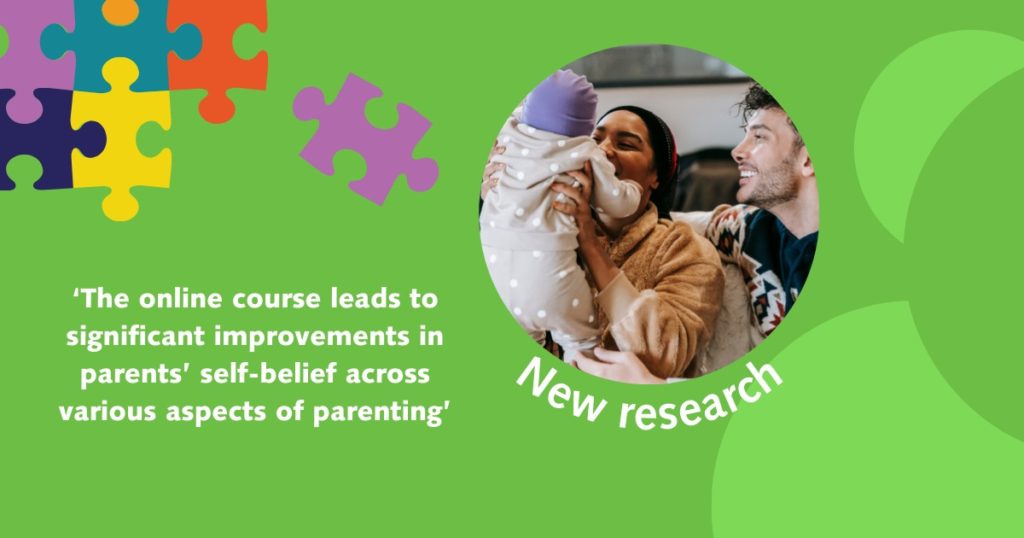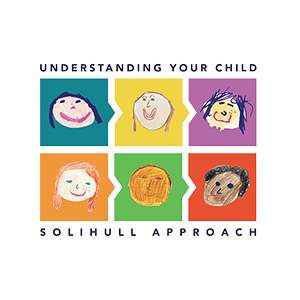Self-belief in parenting ability increases during the postnatal period after completing the Solihull Approach online course
Published 09 November 2023

Solihull Approach is pleased to announce the findings of a very recent study which found the online course ‘Understanding your baby’ hosted on www.inourplace.co.uk and written by the Solihull Approach has a positive impact on parental self-efficacy; the confidence and belief parents have about their ability to carry out their parenting duties successfully. Published in the Community Practitioner*, the report, Understanding your baby: Evaluating a web-based postnatal parenting programme, demonstrates the online course leads to significant improvements in parents’ self-belief across various aspects of parenting, such as feeding, soothing, establishing routines, and understanding their baby’s needs.
‘Understanding your baby’ includes practical support for new parents as well as information on emotional health and brain development, whilst encouraging attuned, sensitive relationships. The study of 2322 participants who completed the pre- and post-course questionnaire (Karitane Parenting Confidence Scale) found statistically significant numbers of parents reporting improvements in their perception of various parenting skills by the end of the course, whilst there was no significant change in the perception of parenting stress.
This study has been critical to understand the effectiveness of online parenting education programmes as impactful resources for parents during the postnatal period. The online course for parents or carers of infants aged between 0-12 months is part of the suite of courses to support the parenting journey written by the Solihull Approach. There are many benefits to completing online courses, for example they are cost-effective, accessible, and have been found to benefit parents who may not have access to in-person resources.
During the postnatal period there are a number of hormonal, psychological, and social changes for caregivers. Attuned and sensitive responses from caregivers are vital for establishing secure attachment patterns (associated with positive outcomes in later life) and enhancing emotional regulation in infants. Low parental self-efficacy has been associated with postpartum depression and can affect both parents and babies. Therefore, improving parents’ belief in their own abilities can make an important contribution to providing the best care for children.
The postnatal period is a critical phase for parents and infants, and interventions like this aimed at enhancing parents’ self-belief are highly valuable for the wellbeing of both during this period and for later in life. This study underscores the importance of digital alternatives for parent support programmes, and their role in providing flexible access to educational and reflective spaces for parents, in promoting good quality parenting practices.
* Original paper: Sanchez Egana, R. and Douglas, H. (2023). Understanding your baby: Evaluating a web-based postnatal parenting programme. Community Practitioner.

Solihull Approach
Online courses for parents, carers, grandparents and teens
For media enquiries, please contact Samantha Williams, Head of Marketing and Communications, samantha.williams@uhb.nhs.uk | +44(0)7500817702
